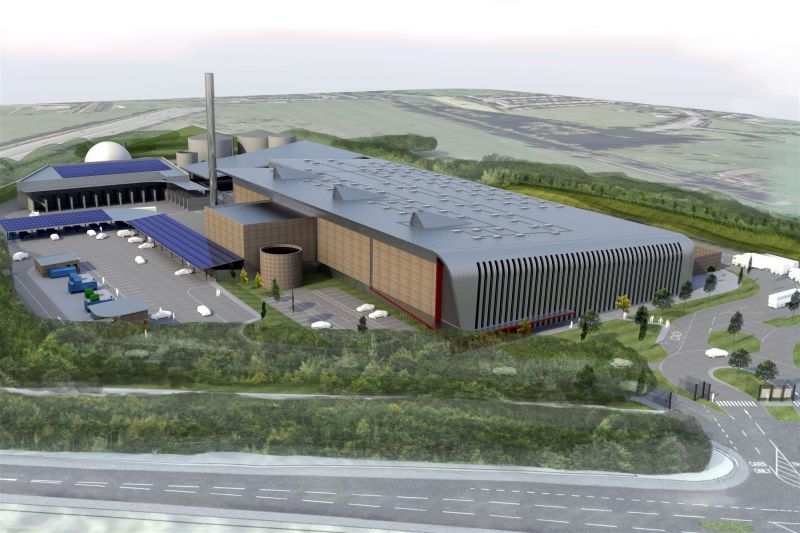MUNICH, Germany (June 1, 2016)—GE announced that global engineering and construction company M+W group has selected its Jenbacher gas engines and Monsal advanced anaerobic digestion system for Surrey County Council’s new Eco Park waste treatment and biogas-to-energy facility being built by SUEZ Recycling and Recovery U.K. in Shepperton, Surrey, England.
The two low-NOx gas engines are being provided by Clarke Energy, GE’s authorized distributor of Jenbacher gas engines. GE made the announcement at the IFAT trade fair happening May 30 to June 3 in Munich.
The Eco Park’s anaerobic digestion facility will process 40,000 tons of food waste annually from households in Surrey. Supported by a waste infrastructure grant from the U.K. government, it will be located adjacent to an existing community recycling center, about 5 miles from London’s Heathrow Airport. With GE’s Monsal anaerobic digestion system, the new facility will convert the food waste into biogas that can generate renewable electricity and heat. The biogas produced will be used to fuel two of GE’s Jenbacher J416 biogas engines, which are configured to generate up to 50 percent of the common limit for NOx and will provide a total of 2.4 megawatts of electrical power. After powering itself, the Eco Park will supply energy to the national grid.

Artist rendering of the new Eco Park waste treatment and biogas-to-energy facility being built in Shepperton, Surrey, England. (Image courtesy of GE)
The Eco Park is being built on behalf of Surrey County Council and will supply baseload renewable power to the local distribution network while at the same time providing an alternative to landfill in the form of anaerobic digestion. In addition to the anaerobic digestion and CHP plant, the Eco Park includes a 55,000-ton-per-year gasification facility with pre-treatment, a recyclables bulking facility and a new visitors’ center. The gasification system will be installed separately and will process municipal waste into a partially renewable combustible gas (known as syngas) for additional power production.
“GE is committed to helping municipal solid waste operators move towards energy neutrality, reduce their environmental footprint and meet regulations as more European countries introduce landfill bans on food waste,” said Heiner Markhoff, president and CEO—water and distributed power for GE Power. “This project is a true testament to the strength of the GE Store, demonstrating how our ability to combine proven technologies across GE businesses allows us to provide one of the best possible solution for our customers.”
For the new project, GE’s scope of work will include the core Monsal process technology, training and plant commissioning. Clarke Energy will provide the two Jenbacher gas engines, which will be built in GE’s facility in Jenbach, Austria, and containerized at the company’s Veresegyház, Hungary, site. GE’s Monsal solution includes GE’s Re:Sep separation technology, the hydrolysis pasteurization digestion for full biological treatment of the waste, high chemical oxygen demand/volatile solids conversion to biogas and AmmCycle for the treatment of high-strength ammonia liquor.

